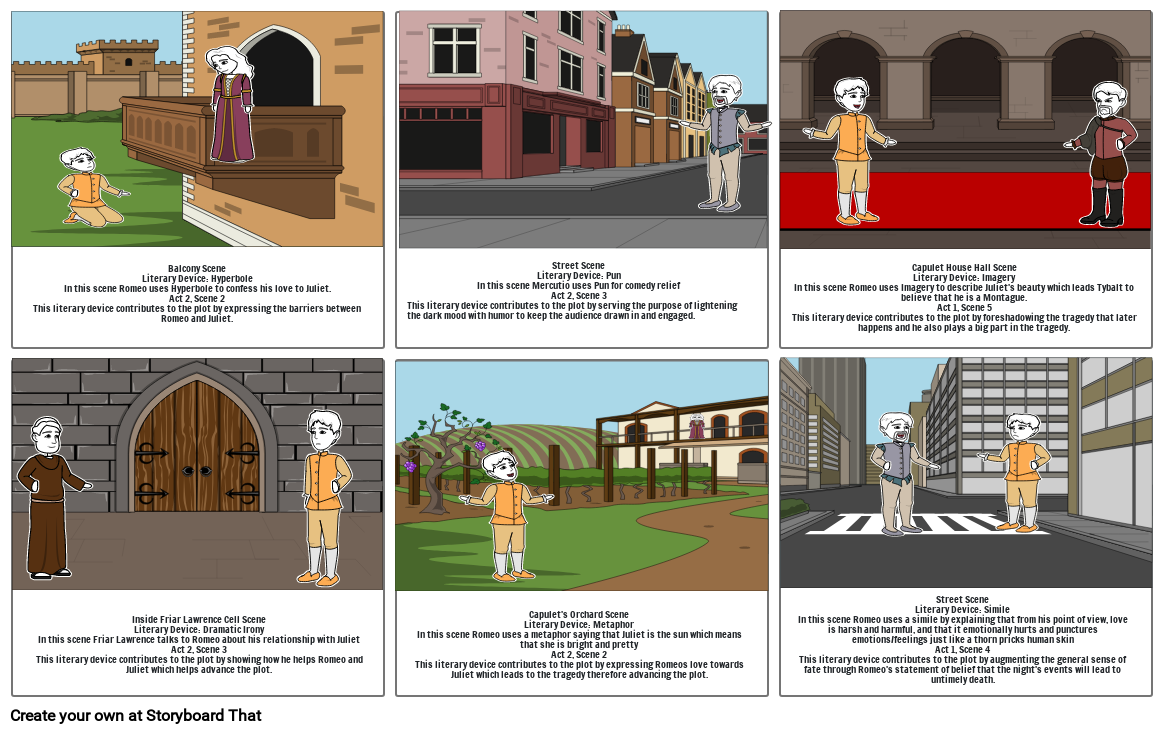Romeo and Juliet

Storyboard Text
- Balcony SceneLiterary Device: HyperboleIn this scene Romeo uses Hyperbole to confess his love to Juliet.Act 2, Scene 2This literary device contributes to the plot by expressing the barriers between Romeo and Juliet.
- Street SceneLiterary Device: PunIn this scene Mercutio uses Pun for comedy reliefAct 2, Scene 3This literary device contributes to the plot by serving the purpose of lightening the dark mood with humor to keep the audience drawn in and engaged.
- Capulet House Hall SceneLiterary Device: ImageryIn this scene Romeo uses Imagery to describe Juliet's beauty which leads Tybalt to believe that he is a Montague.Act 1, Scene 5This literary device contributes to the plot by foreshadowing the tragedy that later happens and he also plays a big part in the tragedy.
- Inside Friar Lawrence Cell SceneLiterary Device: Dramatic IronyIn this scene Friar Lawrence talks to Romeo about his relationship with JulietAct 2, Scene 3This literary device contributes to the plot by showing how he helps Romeo and Juliet which helps advance the plot.
- Capulet's Orchard SceneLiterary Device: MetaphorIn this scene Romeo uses a metaphor saying that Juliet is the sun which means that she is bright and prettyAct 2, Scene 2This literary device contributes to the plot by expressing Romeos love towards Juliet which leads to the tragedy therefore advancing the plot.
- Street SceneLiterary Device: SimileIn this scene Romeo uses a simile by explaining that from his point of view, love is harsh and harmful, and that it emotionally hurts and punctures emotions/feelings just like a thorn pricks human skinAct 1, Scene 4This literary device contributes to the plot by augmenting the general sense of fate through Romeo's statement of belief that the night's events will lead to untimely death.
Over 30 Million Storyboards Created
No Downloads, No Credit Card, and No Login Needed to Try!
